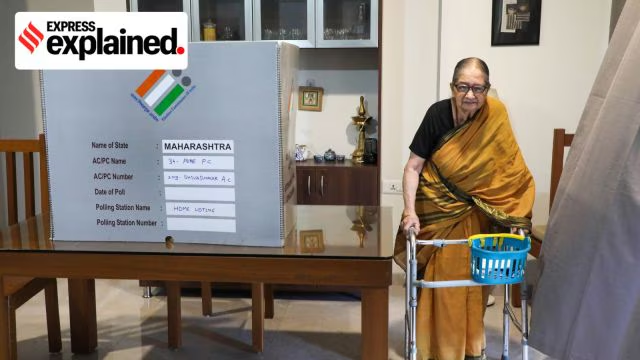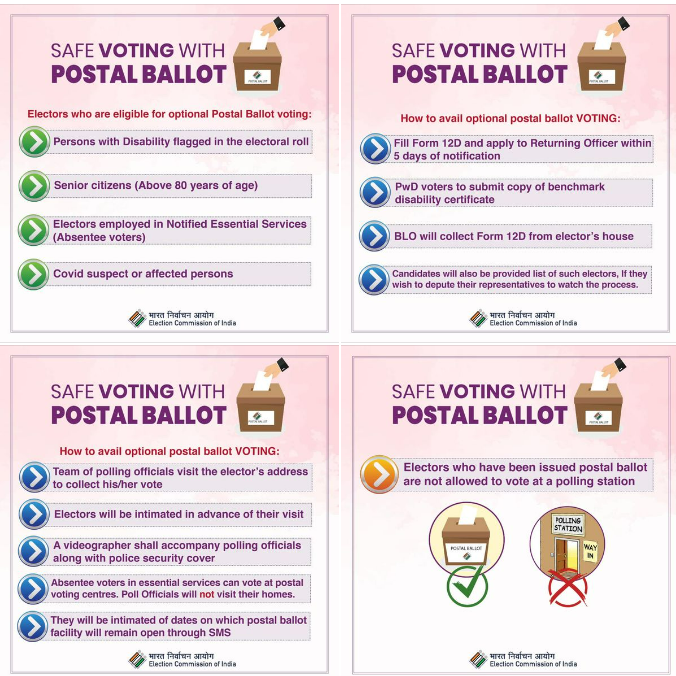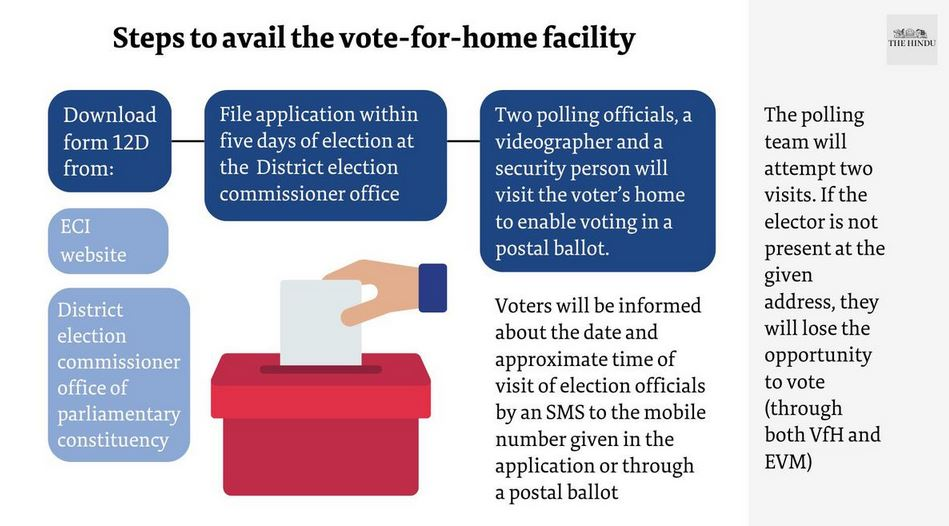Free Courses Sale ends Soon, Get It Now


Free Courses Sale ends Soon, Get It Now



Copyright infringement not intended
Picture Courtesy: https://indianexpress.com/article/explained/special-categories-voters-9351088/
Context: India's electoral framework ensures inclusivity by providing alternative voting methods, such as postal ballots, facilitation centres, and home voting, for voters who cannot reach polling stations on Election Day.
Details
Postal Ballots
Eligibility
Process

Facilitation Centres and Postal Voting Centres
Facilitation Centres
Postal Voting Centres (PVC)
Home Voting
Eligibility
Process

Voting in a Different Polling Centre
Election Duty Certificate (EDC)
Proxy Voting
Assisted Voting
Conclusion
Must Read Articles:
Source:
|
PRACTICE QUESTION Q. What is the purpose of the Electronically Transmitted Postal Ballot System (ETPBS) introduced in India? A) To enhance cybersecurity during elections B) To facilitate voting for senior citizens C) To expedite the delivery of postal ballots to service voters D) To increase voter turnout in rural areas Answer: C |
© 2024 iasgyan. All right reserved